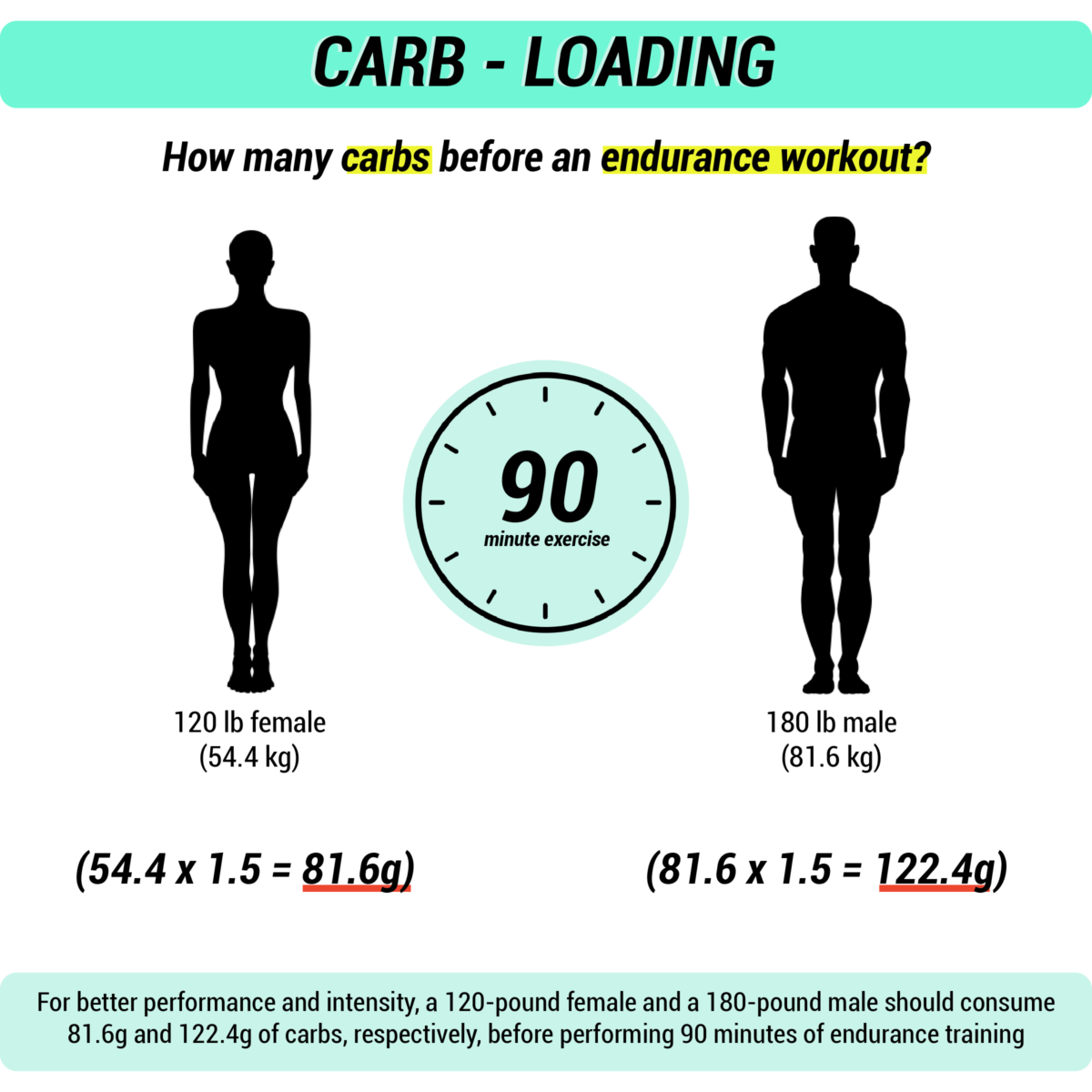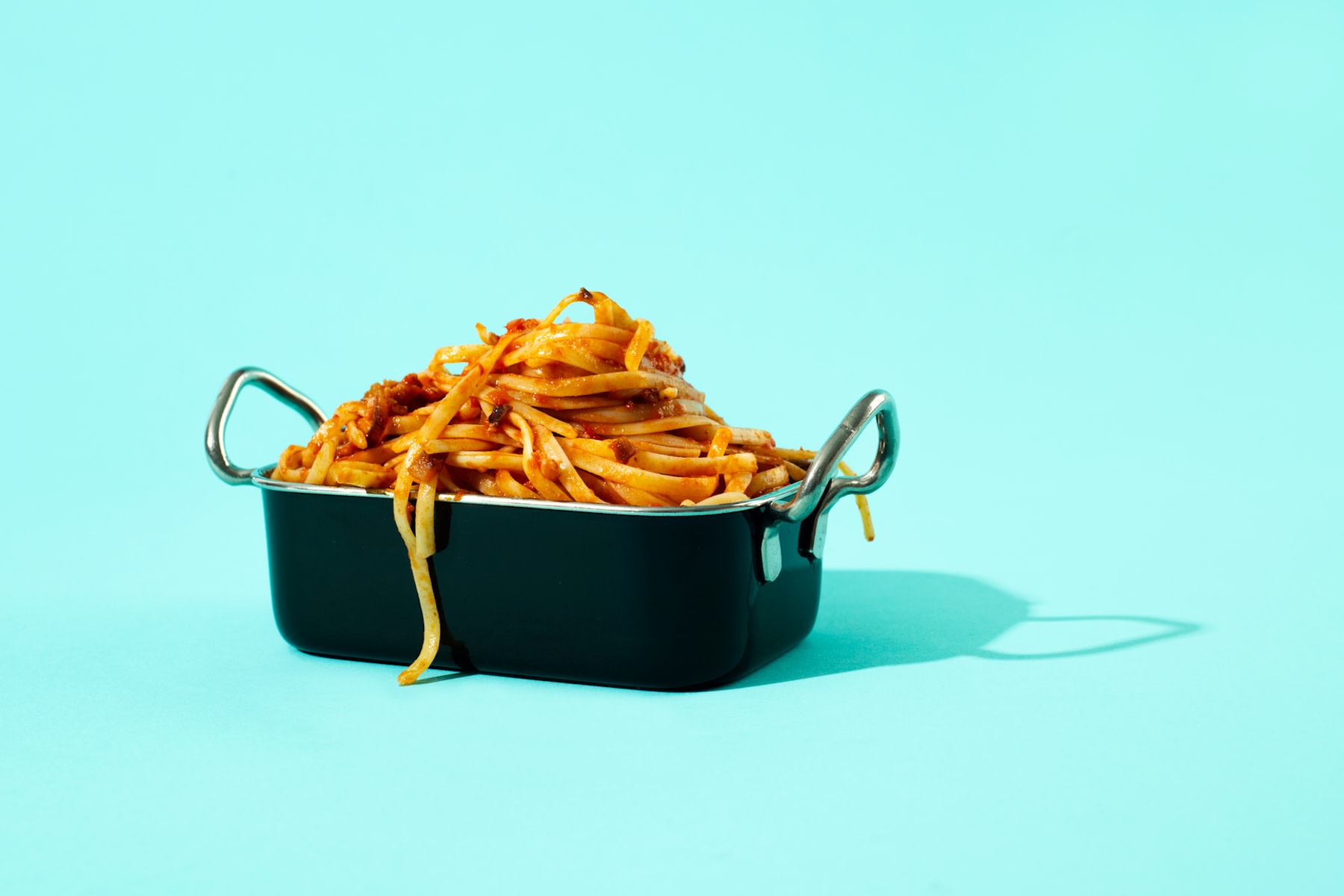Carb Loading The Night Before: The Ultimate Guide To Boosting Your Performance
So, you've probably heard about carb loading the night before a big event, right? Whether you're a marathon runner, a cyclist, or just someone looking to crush a tough workout, carb loading has been a go-to strategy for athletes and fitness enthusiasts alike. But what exactly is carb loading, and why does it matter so much? Let's dive into this topic and break it down for you in a way that's easy to understand, yet packed with all the info you need to make it work for you.
Now, if you're thinking carb loading is just about stuffing your face with pasta the night before a race, you're only partially correct. Sure, pasta is a big part of it, but there's a lot more science and strategy behind it. It's not just about eating carbs randomly; it's about timing, portion control, and understanding how your body processes these carbs to give you that extra boost of energy when you need it most.
Before we get too deep into the details, let me tell you why this matters. Imagine running a marathon and hitting that dreaded "wall" at mile 20. It's not fun, trust me. But with proper carb loading, you can delay or even avoid that wall altogether. So, whether you're an elite athlete or just someone trying to improve their fitness game, carb loading can be a game-changer for you. Let's explore how to do it right!
- Luis Miguel Altura The Rise And Legacy Of A Musical Icon
- Jamie Fraser Of Outlander A Journey Through Time And Love
What Exactly is Carb Loading?
Alright, let's start with the basics. Carb loading, in simple terms, is the process of maximizing your muscle glycogen stores by consuming a higher amount of carbohydrates in the days leading up to an endurance event. Muscle glycogen is essentially your body's stored energy, and when you're doing activities that require sustained effort, like running a marathon or cycling long distances, your glycogen stores can get depleted pretty quickly.
By carb loading, you're essentially filling up your glycogen tank so that you have more energy reserves to draw from during your event. Think of it like filling up your car's gas tank before a long road trip. You want to start with a full tank, right? Same goes for your body. But here's the thing: it's not just about eating carbs. There's a method to this madness, and we'll get into that in a bit.
Why Should You Care About Carb Loading the Night Before?
Here's the deal: if you're doing any kind of endurance activity that lasts longer than 90 minutes, carb loading can make a huge difference in your performance. When you're running low on glycogen, your body starts to break down muscle for energy, which is not ideal. Not only does this slow you down, but it can also lead to muscle fatigue and even injury.
- Shacarri Richardson Workout Plan Achieving Speed And Strength
- Colin Jost And Michael Che A Deep Dive Into Their Unbreakable Friendship
But here's the kicker: carb loading isn't just for professional athletes. Even if you're a weekend warrior or someone who likes to push themselves in the gym, having that extra energy reserve can help you go further, faster, and stronger. Plus, who doesn't love an excuse to eat more pasta, right? Just make sure you're doing it the right way!
How Does Carb Loading Work?
So, how does carb loading actually work? Well, your muscles store glycogen, which is a form of glucose, and this glycogen is what your body uses for energy during prolonged physical activity. When you carb load, you're essentially saturating your muscles with glycogen so that you have more energy available when you need it.
Here's the science behind it: during the carb-loading phase, you consume a higher proportion of carbs in your diet, typically around 70-80% of your total daily calories. This helps increase your muscle glycogen stores by up to 200%. But here's the key: you can't just carb load on the night before. It's a process that takes several days to be effective.
The Science Behind Carb Loading
Let's get a little nerdy for a moment. During prolonged exercise, your body uses glycogen as its primary energy source. When glycogen stores are depleted, you start to fatigue, and your performance suffers. By carb loading, you're essentially increasing the amount of glycogen your muscles can store, which delays the onset of fatigue and allows you to perform at a higher level for longer.
Studies have shown that carb loading can increase endurance performance by up to 2-3%. Now, that might not sound like a lot, but in competitive sports, even a small improvement can make a big difference. And for the average person, it can mean the difference between finishing strong or hitting that wall.
When Should You Start Carb Loading?
Now, here's where things get interesting. You can't just carb load the night before and expect miracles. It takes time for your muscles to fully saturate with glycogen. Ideally, you should start carb loading about 3-7 days before your event. This gives your body enough time to properly store glycogen without overwhelming your digestive system.
Here's a quick breakdown of how to approach carb loading:
- Days 3-7: Start tapering your training while gradually increasing your carb intake.
- Days 1-2: Reduce your training intensity and focus on consuming high-carb meals.
- Night Before: Have a carb-heavy meal, but don't overdo it. You want to feel energized, not bloated.
Common Mistakes to Avoid
While carb loading is a great strategy, there are a few common mistakes people make that can actually hinder their performance:
- Starting Too Late: Remember, carb loading isn't a last-minute thing. You need to start several days in advance.
- Overeating: Eating too much can lead to digestive issues and leave you feeling sluggish on race day.
- Choosing the Wrong Foods: Stick to high-quality carbs like whole grains, fruits, and vegetables. Avoid processed carbs and sugary foods.
What Should You Eat for Carb Loading?
Now, let's talk about the fun part: the food! When it comes to carb loading, you want to focus on nutrient-dense, high-carb foods that are easy to digest. Here are some great options:
- Pasta
- Rice
- Potatoes
- Oatmeal
- Fruits like bananas, berries, and apples
- Whole grain bread
And don't forget to stay hydrated! Drinking enough water is crucial when you're carb loading, as glycogen storage requires water. Aim for at least 8-10 glasses of water per day during your carb-loading phase.
Sample Carb-Loading Meal Plan
Here's a sample meal plan to give you an idea of what a day of carb loading might look like:
- Breakfast: Oatmeal with bananas and honey
- Lunch: Grilled chicken with quinoa and roasted vegetables
- Dinner: Spaghetti with marinara sauce and a side salad
- Snacks: Apple slices with peanut butter, or a handful of grapes
Who Should Consider Carb Loading?
Not everyone needs to carb load, but it can be beneficial for certain types of athletes and activities. If you're participating in an endurance event that lasts longer than 90 minutes, carb loading is definitely worth considering. This includes:
- Marathons and long-distance running
- Cycling events
- Triathlons
- Swimming competitions
- Long hikes or trail runs
Even if you're not a competitive athlete, if you're doing any kind of prolonged physical activity, carb loading can help you perform better and recover faster.
Does Carb Loading Work for Everyone?
While carb loading can be highly effective for many people, it's not a one-size-fits-all solution. Some individuals may experience digestive issues or feel sluggish when they consume large amounts of carbs. Additionally, if you're following a low-carb or ketogenic diet, you might need to adjust your strategy.
It's always a good idea to experiment with carb loading during training sessions before your actual event. This way, you can see how your body responds and make adjustments as needed. And if you're unsure, consulting with a sports nutritionist can be a great way to get personalized advice.
Final Thoughts: Is Carb Loading Right for You?
So, there you have it: everything you need to know about carb loading the night before an event. Whether you're a seasoned athlete or just someone looking to improve their fitness performance, carb loading can be a powerful tool in your arsenal. Just remember to start early, choose the right foods, and listen to your body.
Now, it's your turn! Have you tried carb loading before? What worked for you, and what didn't? Leave a comment below and let us know. And if you found this article helpful, don't forget to share it with your friends and fellow fitness enthusiasts. Happy carb loading, and good luck with your next event!
Table of Contents
- What Exactly is Carb Loading?
- Why Should You Care About Carb Loading the Night Before?
- How Does Carb Loading Work?
- The Science Behind Carb Loading
- When Should You Start Carb Loading?
- Common Mistakes to Avoid
- What Should You Eat for Carb Loading?
- Sample Carb-Loading Meal Plan
- Who Should Consider Carb Loading?
- Does Carb Loading Work for Everyone?



Detail Author:
- Name : Fletcher Hickle
- Username : ruthe.mcclure
- Email : collier.emelie@gmail.com
- Birthdate : 2006-04-05
- Address : 970 Javier Mission Apt. 430 Shieldsborough, CT 67033-5099
- Phone : +1 (959) 214-5144
- Company : Dooley-Renner
- Job : Forming Machine Operator
- Bio : Debitis voluptatem odit laborum omnis aut ut repudiandae consequatur. Dolores inventore asperiores necessitatibus quia.
Socials
linkedin:
- url : https://linkedin.com/in/kautzer2008
- username : kautzer2008
- bio : Dicta explicabo molestiae et explicabo.
- followers : 2368
- following : 359
facebook:
- url : https://facebook.com/garrisonkautzer
- username : garrisonkautzer
- bio : Minima ut accusamus odio quia et nesciunt odio.
- followers : 5277
- following : 1876
instagram:
- url : https://instagram.com/gkautzer
- username : gkautzer
- bio : Id autem tempore sit quod dolorem ut et. Blanditiis ut ullam qui.
- followers : 4241
- following : 1559